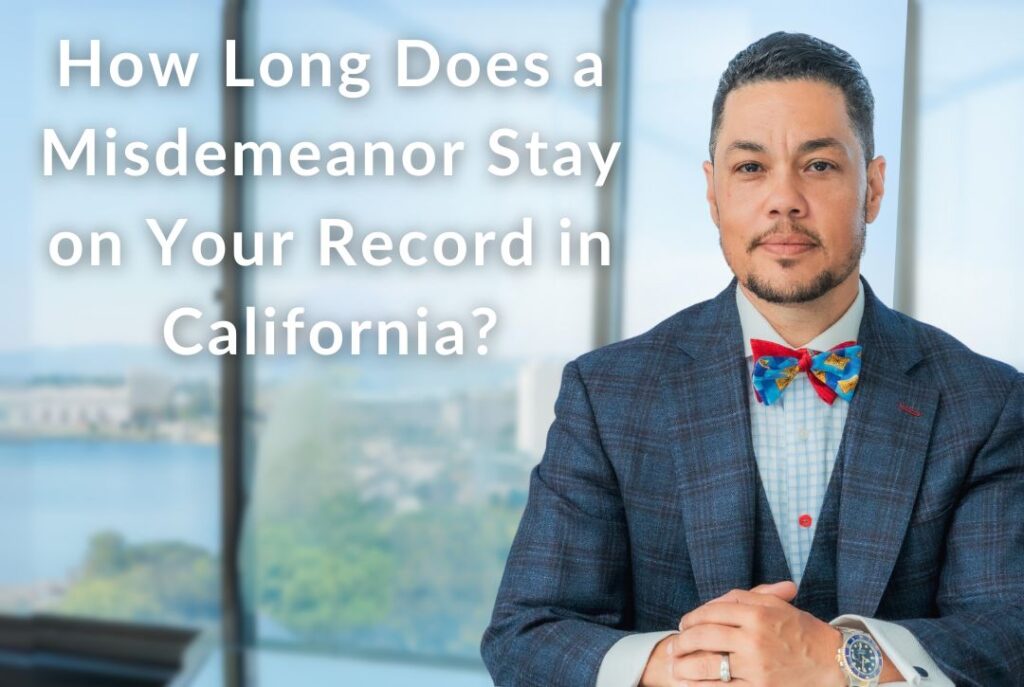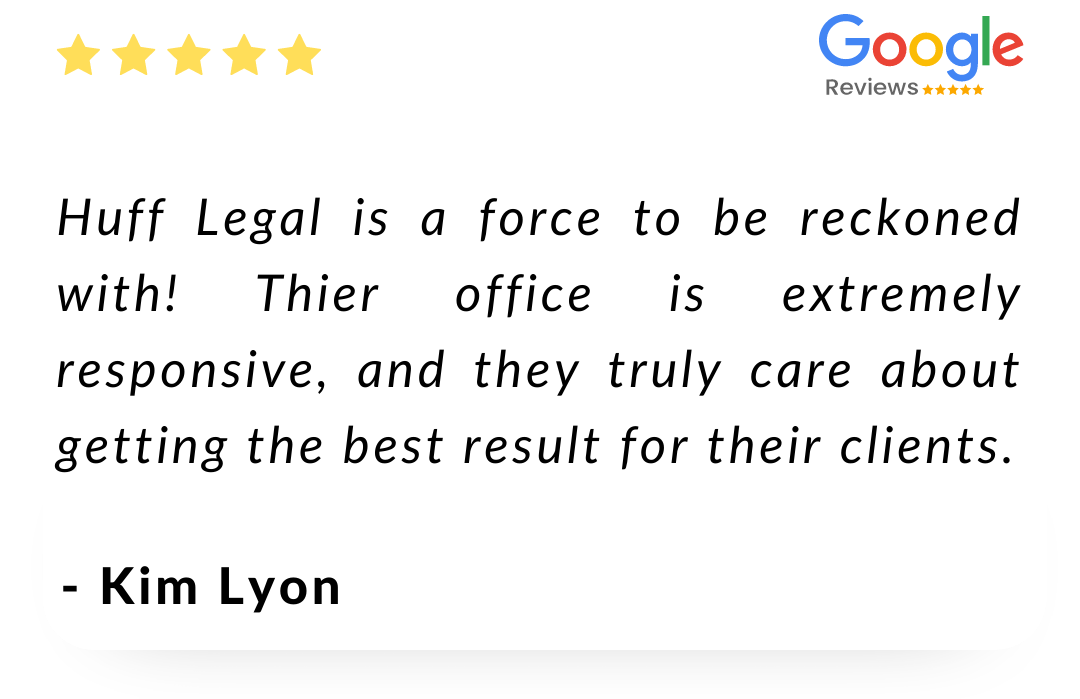How Long Does Misdemeanors Stay on Your Record in California?
How Long Do Misdemeanors Stay on Your Record in California?
The California Department of Justice (DOJ) has a strict policy regarding criminal records. As the California Attorney General’s Office mandates, the DOJ must document all offenses reported by California courts and law enforcement agencies.
The criminal history information is maintained in their records until the individual reaches 100 years of age. Unless deleted, a misdemeanor conviction can effectively remain on your record for life unless the conviction is remedied through a petition to dismiss, potentially impacting various aspects of your future.
What Is a Misdemeanor in California?
In California, a misdemeanor is a criminal offense that falls between an infraction and a felony in terms of severity. These offenses can have serious consequences, even though they are less severe than felonies. If you’re facing a misdemeanor charge, it’s important to understand what it means and how it could affect your life.
Misdemeanors in California typically include offenses like:
- Petty theft
- First-time DUI (without injuries)
- Simple assault
- Certain drug possession charges
The penalties for misdemeanors can include:
- Up to one year in county jail
- Fines up to $1,000
- Probation
- Community service
- Mandatory rehabilitation programs
While these penalties may seem less severe than those for felonies, they can still significantly impact your life. A misdemeanor conviction can affect your employment prospects, housing options, and even some civil rights.
Request a Free Consultation
Misdemeanor Charge Versus Misdemeanor Conviction
It’s crucial to understand the difference between being charged with a misdemeanor and being convicted of one:
A misdemeanor charge means you’ve been accused of committing a misdemeanor offense. At this point, you’re presumed innocent until proven guilty.
A misdemeanor conviction occurs when you either plead guilty to the charge or are found guilty in court. This is when the penalties are imposed, and the offense becomes part of your criminal record.
California Misdemeanor Recordkeeping
Understanding how misdemeanors are recorded and maintained in California is crucial if you’re facing charges or have a past conviction. The state’s approach to misdemeanor records can have long-lasting effects on your life.
Criminal Records in California
In California, misdemeanor convictions generally remain on your criminal record for life unless you take action to have them dismissed. Unlike some states that automatically expunge or seal certain records after a period of time, California requires you to petition the court for dismissal.
Here’s what you need to know about misdemeanor records in California:
- They don’t automatically disappear or get sealed over time
- Even minor misdemeanors, like shoplifting, can show up on background checks indefinitely
- Some misdemeanor convictions can result in the loss of certain civil rights, such as firearm ownership
However, there is hope. California does offer a process similar to expungement, known as dismissal. While it doesn’t completely erase the record, it can change the status from “convicted” to “dismissed,” which can be beneficial in many situations.
Will a Misdemeanor Show Up on a Background Check?
Yes, a misdemeanor conviction will typically appear on a California background check. Here’s what you should know:
- Most employers, landlords, and educational institutions can see misdemeanor convictions on background checks
- Even if your conviction is dismissed, the arrest and original charge may still appear but will be shown as dismissed
- Some background checks only go back 7 years, but others can show your entire criminal history
It’s important to note that while a misdemeanor can show up on a background check, having a conviction dismissed can significantly improve its perception. Many employers and landlords understand a dismissed conviction more than an active one.
How Long Do Misdemeanors Stay on Your Record?
A misdemeanor conviction in California can stay on your record for a lifetime unless you take action to have it removed. According to the California Attorney General’s Office, the Department of Justice maintains criminal history information until a person reaches 100 years of age.
It means that even a minor offense can have long-lasting consequences on your life, affecting everything from job opportunities to housing applications.
When Does a Misdemeanor Go Off Your Record?
Unfortunately, misdemeanors don’t automatically “go off” your record after a certain period. They remain there indefinitely unless you take steps to have them removed through a process called expungement. However, it’s important to note that even if you can’t remove the record entirely, there are ways to mitigate its impact on your life.
Living with a misdemeanor on your record can present various challenges in your daily life. Understanding these potential impacts is crucial so you can take steps to address them.
Will a Misdemeanor Ruin My Life?
While a misdemeanor conviction is serious, it doesn’t have to ruin your life. Many people with misdemeanors on their records go on to lead successful, fulfilling lives. However, it can create obstacles in certain areas:
- Employment: Some employers may be hesitant to hire individuals with criminal records.
- Housing: Landlords might deny rental applications based on criminal history.
- Education: Certain educational institutions may consider criminal records in their admissions process.
- Professional Licenses: Some professions require clean records for licensing.
The key is to address these challenges and proactively seek legal assistance when necessary.
Expunging Misdemeanors in California
If you’re concerned about the impact of a misdemeanor on your record, expungement might be an option worth exploring.
What is Expungement?
In California, expungement is technically called a “dismissal” under Penal Code §1203.4. This process allows you to petition the court to reopen your case, withdraw your plea or verdict of guilty, and dismiss the case. While it doesn’t completely erase the record, it can significantly reduce its impact on your life.
Eligibility for Misdemeanor Expungement
Not all misdemeanors are eligible for expungement, but many are. You may be eligible if:
- You’ve successfully completed probation for the offense.
- You didn’t serve time in state prison for the offense.
- You’re not currently charged with, on probation for, or serving a sentence for any other criminal offense.
It’s important to note that certain offenses, particularly those involving sex crimes against children, are not eligible for expungement.

As Seen On












Why Get Misdemeanors Expunged From Your Record?
Getting a misdemeanor expunged from your record can significantly improve your quality of life and future prospects. In California, while it’s technically called a “dismissal,” this process can help you move forward without the burden of a past mistake. Here’s why you should consider expungement:
Employment Opportunities
One of the most significant benefits of expungement is its impact on your job prospects. Many employers conduct background checks, and a misdemeanor on your record can be a red flag. With an expunged record:
- You can legally answer “no” to questions about convictions on job applications (with some exceptions)
- Employers in the private sector can’t use the expunged conviction as a reason not to hire you
- You’ll have a better chance of advancing in your career without the stigma of a criminal record
Housing and Education
Your criminal record can affect more than just your job prospects. It can also impact your ability to find housing and pursue education:
- Housing: Many landlords run background checks. An expunged record can make it easier to secure rental housing.
- Education: Some colleges and universities ask about criminal history. Expungement can prevent your past from affecting your educational opportunities.
By expunging your record, you’re removing potential roadblocks to stable housing and educational advancement, both of which are crucial for long-term success and well-being.
Professional Licenses and Personal Life
Expungement can have far-reaching effects on both your professional and personal life:
- Professional Licenses: Many professions require licenses that can be affected by a criminal record. Expungement can help you obtain or maintain licenses in fields like healthcare, law, or education.
- Personal Life: A criminal record can carry a social stigma that affects personal relationships. Expungement allows you to move forward without this burden, improving your social and family life.
Additionally, expungement can restore certain civic rights, such as the ability to serve on a jury or hold public office in some cases.
How to Obtain a Misdemeanor Expungement in California
If you’re ready to pursue expungement, here’s a step-by-step guide to help you navigate the process:
- Check Your Eligibility: Ensure you meet the basic requirements:
- You’ve completed probation, or it’s been at least one year since your conviction.
- You’ve paid all fines, restitution, and court-ordered fees.
- You’re not currently facing any criminal charges or serving a sentence.
- Gather Necessary Documents: You’ll need:
- Your case number
- The date of your conviction
- Proof of completed probation or sentence
- File a Petition: Submit a Petition for Dismissal (Form CR-180) to the court where you were convicted. You may need to pay a filing fee, though fee waivers are available for those who can’t afford it.
- Attend the Hearing: The court may schedule a hearing. Be prepared to explain why you deserve expungement and how you’ve changed since the conviction.
- Wait for the Decision: The judge will review your petition and make a decision. If granted, your record will be updated to show that the case was dismissed.
If you need clarification on any step or need assistance, consider consulting with a legal professional who specializes in expungements. They can guide you through the process and increase your chances of success.
What Clients Say About Us





Schedule Your Free Consultation Today
Can I Avoid a Misdemeanor Conviction?
Yes, avoiding a misdemeanor conviction is possible, even if you’ve been charged with one. There are several strategies and options available that help you avoid having a conviction on your record. Remember, a conviction can have long-lasting consequences, so exploring all possible avenues to avoid it is worth exploring.
Plea Bargaining
One common way to avoid a misdemeanor conviction is through plea bargaining. This involves negotiating with the prosecutor to:
- Reduce the charge to a less serious offense
- Plead to an infraction instead of a misdemeanor
- Agree to a diversion program in exchange for dismissal of charges
Diversion Programs
Many jurisdictions offer diversion programs for certain misdemeanor offenses. These programs typically involve:
- Completing community service
- Attending counseling or educational classes
- Paying restitution, if applicable
If you successfully complete the program, the charges against you may be dismissed, helping you avoid a conviction.
Challenging the Evidence
In some cases, it may be possible to challenge the evidence against you. This could involve:
- Questioning the legality of how evidence was obtained
- Challenging witness testimony
- Presenting alternative evidence that supports your innocence
If successful, this strategy could lead to charges being reduced or dismissed entirely.
Deferred Entry of Judgment
Some courts offer a deferred entry of judgment for certain offenses. This means:
- You plead guilty, but the judge doesn’t enter a conviction
- You’re given conditions to meet, similar to probation
- If you successfully complete the conditions, the case is dismissed without a conviction on your record
Remember, the availability of these options can vary depending on the specific charges, your criminal history, and the jurisdiction where you’re charged. That’s why it’s crucial to consult with an experienced criminal defense attorney who can advise you on the best strategy for your unique situation.
Get Expert Legal Help from Huff Legal
At Huff Legal, we understand the stress and uncertainty that come with facing misdemeanor charges. Our experienced team is dedicated to providing you with the robust legal representation you need during this challenging time.
We’ll work tirelessly to protect your rights, explore all available options, and strive for the best possible outcome in your case. Don’t let a misdemeanor charge derail your future.
Contact Huff Legal today for a confidential consultation. Let us use our expertise to help you navigate the legal system and reach a resolution that minimizes the impact on your life.
FAQ
Do I have to disclose a misdemeanor after 7 years in California?
Generally, you do not have to disclose a misdemeanor conviction older than 7 years in California for most employment background checks. However, certain industries and positions may require disclosure regardless of time passed. It’s best to consult with a legal professional for specific advice.
What is the new law for misdemeanors in California?
California’s “Clean Slate Laws” (AB 1076 and SB 731) provide for the automatic sealing of certain misdemeanor records. Under these laws, misdemeanor records are automatically sealed one year after the sentence is completed, provided there is no further criminal activity. This effectively expunges the record from most background checks.
How far back does a background check go in California?
In California, most employment background checks can only go back 7 years for criminal convictions. However, some exceptions exist for certain positions or industries where older convictions may be reported.
It’s important to note that arrests that do not lead to conviction, pardoned convictions, and sealed records should not appear on background checks, regardless of their age.
LET HUFF HELP YOU
As a former police officer and patrol supervisor and his time spent as a United States District Court Judicial Law Clerk to the Chief Judge, Attorney Huff knows how to navigate all levels of the complex criminal law system. We also have more than 55 years of combined experience dealing with various complex criminal legal matters and have helped just over 1,500 clients over the past few years.
Why Huff Is Your Best Option For Criminal Defense
55+ Years of Combined Experience
At Huff Legal, we have more than 55 years of combined experience dealing with complex criminal legal matters, which can oftentimes be quite challenging. In order to get the outcome you deserve, you need a team of experienced attorneys on your side, who can help you navigate the legal system, so you can move past this situation and focus on the life ahead of you!
5 Star Rating on Google
We have a proven track record of success and are dedicated to our clients’ best interests. If you’re looking for a law firm that will always have your back, look no further than Huff Legal. Just have a look at some of our amazing client reviews over here!
1,500+ Happy Clients
Over the years, we’ve had the privilege of helping over 1,500 clients with their legal needs. When you work with us, you can be confident that you’re getting the best possible legal representation. We’re proud of our track record and our reputation for being a firm that delivers great results.
What Our Clients Say About Us


Sheila


Abel Resendiz


Manuela Frazier


Doris
Contact Huff Today
Request A Free Consultation
* Free consultations only available for Criminal Defense


In legal terms, an accessory to murder refers to an individual who aids, abets, or otherwise assists in committing a murder. While the specifics may vary across jurisdictions, California law treats accessories to murder as active participants in the crime, holding them accountable for their actions. In San Francisco Bay Area, there are two primary types of accessories to murder:
In the event that you find yourself in the Bay Area facing accessory to murder charges, you should first call a criminal defense attorney who can help you defend your rights and lessen the effects of the investigation. Contact an attorney at Huff Legal as soon as possible following your arrest. An accomplished attorney from Huff Legal will thoroughly examine your case, who will then develop a strategy and build a defense.
